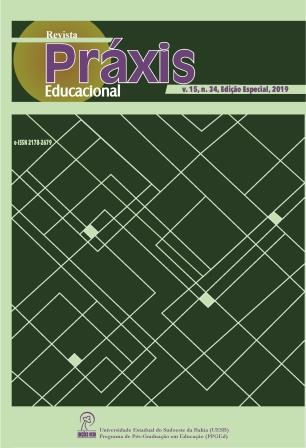La PRÁCTICA COMO COMPONENTE CURRICULAR: (RE) INDAGACIONES PARA LA FORMACIÓN DOCENTE
DOI:
https://doi.org/10.22481/praxisedu.v15i34.5505Palabras clave:
Curriculum, Education, Graduation, TeachingResumen
Assuming, as a point of origin, that the expression Practice as a Curricular Component (PCC) inserted in the heart of the discussions for formatting the undergraduate degrees curricula still requires a better interpretation in relation to the activities that integrate it, in this article, we aim to review some conceptions about the subject, presenting, as results, comparative aspects that distinguish it from the other curricular components of undergraduate degrees’ pedagogical projects. It is stated that the conceptual domain and unit of the component’s understanding (PCC) corroborate to define the undergraduate degree’s identity and to the solid apprehension of teaching as an object of teaching and research in these courses. Still, we perceive that these understandings help us to think about the processes of teaching and learning in teacher training and mobilize the knowledge construction and formative possibilities. In this way, we seek through this text to reflect on the practice as a curricular component and its contributions to teacher training, mainly, as far as the processes of teaching and learning are concerned.












